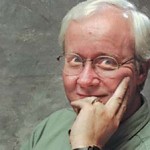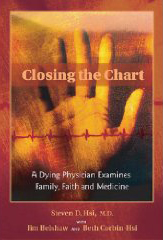Mon 4 May 2009
God Talk
Posted by jimbelshaw under Conversations
Comments Off on God Talk
My friend, John Fleck, the veteran Albuquerque Journal science writer, has introduced me to a couple of physicist pals of his who regularly take on the evolution debate, which of course always leads to a religion debate.
In today’s Times, Stanley Fish, writes an essay on a book by the British critic Terry Eagleton. It sounds to me like Eagleton does a pretty good job of describing what science can and can’t do; and what religion can and can’t do. The book is “Reason, Faith and Revolution.â€
Here’s a small bit: ”
By theological questions, Eagleton means questions like, “Why is there anything in the first place?â€, “Why what we do have is actually intelligible to us?†and “Where do our notions of explanation, regularity and intelligibility come from?â€
The fact that science, liberal rationalism and economic calculation can not ask — never mind answer — such questions should not be held against them, for that is not what they do.
And, conversely, the fact that religion and theology cannot provide a technology for explaining how the material world works should not be held against them, either, for that is not what they do. When Christopher Hitchens declares that given the emergence of “the telescope and the microscope†religion “no longer offers an explanation of anything important,†Eagleton replies, “But Christianity was never meant to be an explanation of anything in the first place. It’s rather like saying that thanks to the electric toaster we can forget about Chekhov.â€



No Responses to “ God Talk ”
Sorry, comments for this entry are closed at this time.